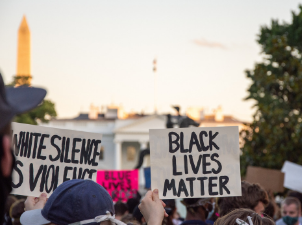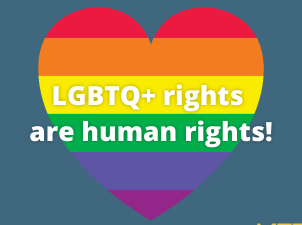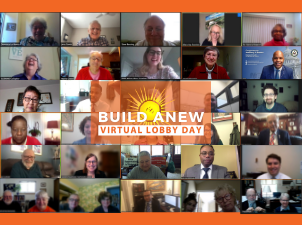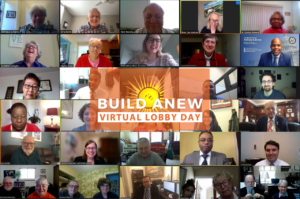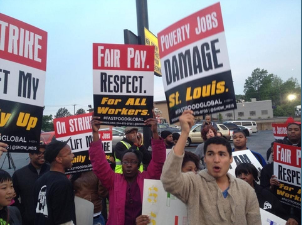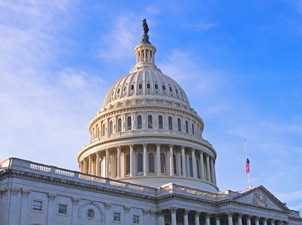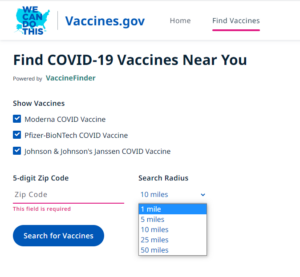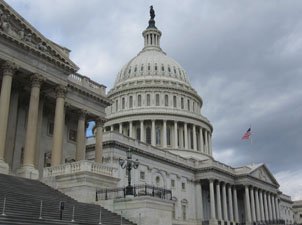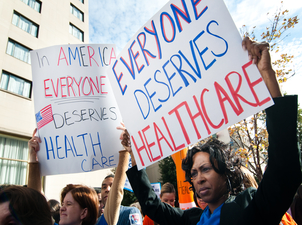
Juneteenth 2021 Events List
Caraline Feairheller
June 17, 2021
On June 19, 1865, about two months after the Confederate General Robert E. Lee surrendered at Appomattox, Virginia, six months after Congress passed the 13th Amendment and more than two full years after President Abraham Lincoln issued the first proclamation; Union General Gordon Granger arrived in Galveston, Texas, to inform enslaved Black people of their freedom and that the Civil War had ended. Since then, Juneteenth has been a day of celebration in the Black community and continues to be an act of resistance and resilience in the face of racial oppression that shamefully continues today.
This Juneteenth we must pause and acknowledge the immense gap between the freedom promised in 1865 and the freedom delivered. The events listed below are opportunities to engage with the history and celebration of Juneteenth as well as recognize the work that can and still must be done:
[Virtual] 4 Generations of Black Civil Rights Leaders | June 17 at 8:00 PM Eastern
Hosted by the Center for Common Ground. This event will feature four Black Civil Rights Activists from Georgia and Virginia who are working to ensure that Black voters are able to vote. The event guests are Dr. William Ferguson “Fergie” Reid, Cliff Albirght, Andrea Miller, and Evan Malborough.
[Virtual] A Global Conversation on Reparations | June 18 at 1:30 PM Eastern
Hosted by the Thurgood Marshall Civil Rights Center at Howard University School of Law. Presented in honor of Juneteenth, this program examines reparations from a global perspective, with advocates from the United States, the Caribbean, the UK and Europe discussing the challenges and progress in achieving reparations. In addition, the webinar will share information about international advocacy for reparations, and discuss where and how this work fits within the context of the International Decade for People of African Descent.
[Virtual] Live with Carnegie Hall: Juneteenth Celebration | June 19 at 7:30 PM Eastern
Rev. Dr. James A. Forbes Jr. leads this celebration—along with Tamara Tunie, and special guests Wayne Brady, Martin Luther King III, and Annette Gordon-Reed—to recognize the importance of this historic day and to acknowledge the long road still ahead. In addition to music, dance, and commentary, the evening also recognizes contributions made by prominent African Americans today: Bryan Stevenson, founder and executive director of the Equal Justice Initiative; Robert F. Smith, businessman and chairman of Carnegie Hall’s Board of Trustees; and Congresswoman Sheila Jackson Lee.
[In-Person and Virtual] Juneteenth Now 2021: Get Us Free | June 19 at 5:00 PM Eastern and June 20 at 3:30 PM Eastern
Hosted by the Middle Church and the Riverside Church. This Black-led celebration and fundraiser, is produced by Charles Randolph-Wright and Shanta Thake. Join in-person, or stream virtually, for an evening showcasing a rare LIVE performance by Stephanie Mills who will debut her new single, “Let’s Do the Right Thing.” This ticketed event will be hosted by Rev. Dr. Jacqui Lewis and Rev. Michael Livingston with more talented performing artists including Loretta Devine; Kamilah Forbes; Martha Redbone; Tituss Burgess; Celisse Henderson; Kaliswa Brewster, an ensemble of Riverside Church & Middle Church choirs, spoken word, dance and jazz! Come in-person or watch from home to celebrate a stunning night of fierce resilience. Proceeds from the event will continue to power Black wellness programming at both institutions, as well as support in Middle rising from its devastating fire in 2020.
[Virtual] Night of a Thousand Conversations | June 19 at 8:00 PM Eastern
Hosted by the Grassroots Reparations Campaign More than ever, our nation needs to understand that #reparations are much more than a check. True repair healing, education and culture shifting, compensation, restitution and guarantees to stop the harm that began with slavery and continues through various forms of discrimination. The Grassroots Reparations Campaign invites you to participate in a Night of a Thousand Conversations. On June 19th, known as Juneteenth, we honor and observe those last to receive the news of emancipation from slavery. Our hope is that between June 19 and August 21 (#ReparationSunday) to reflect on African chattel slavery, its legacy and its impact on your community and find your path to building a culture of repair.







